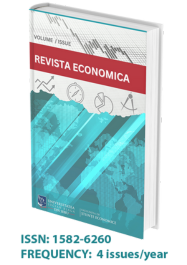
MODELLING EMPLOYEE ENGAGEMENT IN RELATION TO CSR PRACTICES AND EMPLOYEE SATISFACTION
VINEREAN Simona, The Bucharest University of Economic Studies
CETINA Iuliana, The Bucharest University of Economic Studies
DUMITRESCU Luigi, TICHINDELEAN Mihai, Lucian Blaga University of Sibiu
Abstract:
Nowadays, companies are becoming more and more interested in internal marketing tactics in order to ensure a lower turnover rate, employee engagement and satisfaction. Also, giving the pressure global companies are experiencing from their stakeholders in getting involved in corporate social responsibility practices, they are considering sustainable initiatives to engage their employees and cater to their stakeholders' demands. Many international companies have an agenda of sustainability and corporate social responsibility, but have yet to overcome many challenges regarding the creation of staff engagement in the successful implementation of these techniques. Strategic internal marketing has the potential for to become a strategy of employee valorization, in the long-term profit maximization perspective, while the company's image can be enhanced and the sustainable practices can be the subject of viral marketing, with positive effect in the short term. This paper is based on the premise that internal marketing is an important tool in activities that have employee engagement as an important goal to achieve within any company, in general, and especially in a green company.
Keywords: internal marketing, employee engagement, employee satisfaction, corporate social responsibility, green marketing, structural equation model
JEL Classification: M31
Volume: 65, Issue: 1
Pages: 21 - 37
Publication date: , 2013
Download the article: http://economice.ulbsibiu.ro/revista.economica/archive/65102vinerean&cetina&dumitrescu&tichindelean.pdf
VINEREAN Simona, CETINA Iuliana, DUMITRESCU Luigi, TICHINDELEAN Mihai, 2013, MODELLING EMPLOYEE ENGAGEMENT IN RELATION TO CSR PRACTICES AND EMPLOYEE SATISFACTION, Revista Economică, Lucian Blaga University of Sibiu, Faculty of Economic Sciences, vol.65(1), pages 21-37,

All content is licensed under the
Creative Commons Attribution 4.0 International License (CC BY 4.0)
.








